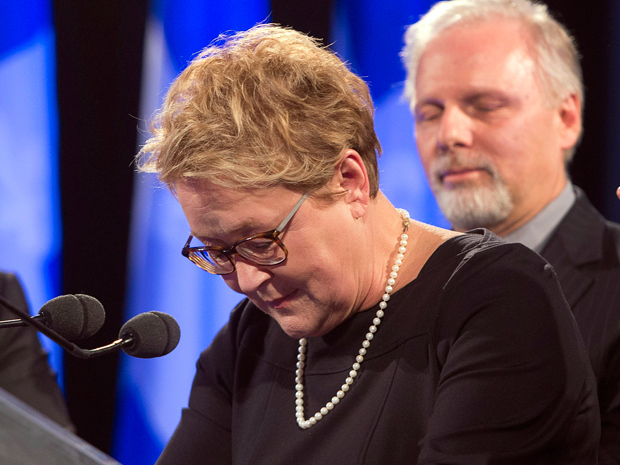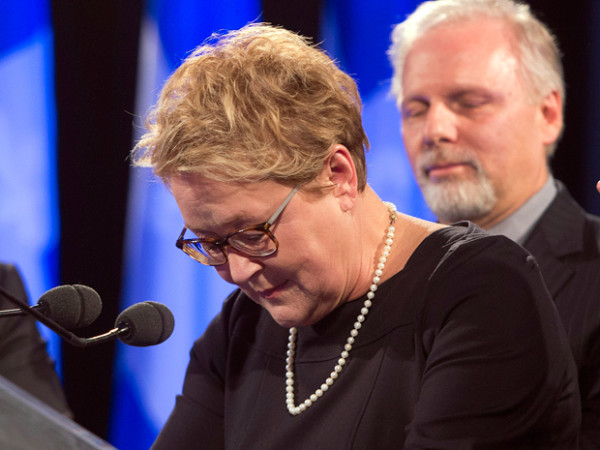The results of the recent Quebec election spelled the end for the province’s first-ever Parti Quebecois government. Just over a year into its first mandate and with majority hopes in sight, the PQ made a strategic decision to call the election — a move which eventually cost the party everything. The Quebec Liberal Party took 70 seats out of the National Assembly’s 125 — sending a clear message from Quebec voters that a third referendum on sovereignty is not among their top priorities.
This outcome can mean two things for the future of the PQ. First, one may reasonably argue that the PQ’s crushing election defeat is the perfect opportunity for the party’s leaders to reflect on what the party stands for — namely, Article 1 of its platform, which makes sovereignty its primary objective. As the election results showed, Quebecers are becoming more and more likely to reject the idea of a referendum on sovereignty altogether.
For this reason, commentators like Liberal MP Stephane Dion argue that the future of the PQ is in jeopardy, as PQ supporters are united by the dream of Quebec becoming its own country and, if sovereignty is removed from the equation, there is nothing keeping these supporters together. Interestingly, it appears that this is not the message that the PQ is taking away from the election, as evidenced by the party’s election night speech which reinforced the appeal for an independent Quebec.
Second, one may argue that this election result does not mean that the issue of sovereignty in Quebec is dead. Indeed, nationalism has persisted in Quebec for decades, with many commentators referring to its somewhat unpredictable nature.
With that being said, the PQ has long banked on the persistence of nationalist sentiment in Quebec, even making the assumption that independence is the province’s “normal and inevitable future.” Many argue that this proposition may have been credible during the early days of the PQ, when young people largely supported separation. Today, this proposition has proved less true, as the PQ enjoys most of its support from the 55-64 age bracket.
On election day, a large-scale, non-partisan study revealed the shocking voting intentions of Quebec youth aged 12-17. In 350 secondary schools across the province, students participated in mock elections in which ballots replicated those of the official election in each riding. Nearly 70,000 students participated in the study, and the results were 36% in favour of the Liberals, 21% in favour of the Coalition Avenir Quebec, 13% in favour of Quebec Solidaire, and just 18% in favour of the once-dominant-among-youth Parti Quebecois.
According to Remi Bouget, who founded the group Quebec Inclusif to fight the PQ’s values charter, the sovereigntist movement is simply out of touch with the views of young Quebecers. He added, “[Young Quebecers] grew up under Bill 101. [We] don’t feel that the French language is threatened in Quebec any more. We don’t feel that people from a different religion are a threat to our way of life.”
These assertions are not to say that sovereigntist sentiment in Quebec is dying. However, this does suggest that, if any party is to make sovereignty its objective, it will have to do so in a way that goes beyond merely promising to hold yet another referendum on separation. The traditional methods of broaching the topic of sovereignty are no longer desirable nor viable in the minds of young Quebec voters. Indeed, in order to revitalize the issue, the PQ — and any nationalist party in Quebec for that matter — will have to give the issue of separation an entirely new face.
In a traditional manner, the PQ made the strategic decision to call an election in the hopes of capitalizing on what many say was its best chance at making the issue of separation front and centre. The backfiring of this decision may mean that this may have also been the party’s last chance at holding another referendum. Moving forward, the PQ will have to overcome a daunting obstacle — the age demographics of its supporters.





